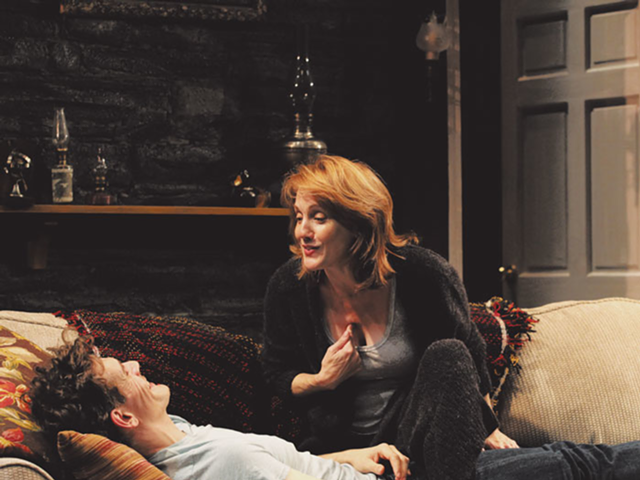Anthony Marra’s masterful 2013 debut novel, A Constellation of Vital Phenomena, rightly garnered high praise from across the literary landscape for its graceful prose and its affecting ability to find humanity amid harrowing circumstances. The novel’s interweaving narrative, largely told through the lives of everyday Chechens, is set during the Chechen War of 2004, with the intermittent jump to 10 years before and after.
Likewise, Marra’s just-published new book, The Tsar of Love and Techno , is an interlocking collection of Russia-setstories that deftly move from the repressive regime of Joseph Stalin in the 1930s to the post-Soviet, Vladimir Putin-led current day.
CityBeat recently connected with Marra — who had just arrived in New York City from Berlin, where he’s in the midst of a semester-long fellowship — to discuss his latest literary effort, which is again yielding rapturous praise. CityBeat: How did the success ofyour first book impact the writing of your new one?
Anthony Marra: It made me work even harder to ensure readers of Constellation wouldn’t be disappointed with Tsar.
CB: Why did you present The Tsar of Love and Techno as a collection of stories rather than a novel?
AM: I’m not sure that either “short story collection” or “novel” really fit Tsar’s form. The book is a novel that’s composed of short stories rather than chapters, hopefully cohesive enough that if any one story were taken out, all would suffer its absence. The scope and range this allows, in covering nearly a century of Russian history, drew me to this form. There must be some wonderful compound German word to describe that in-between space between a novel and a short story collection, but I don’t know what it is.
CB: Why did you center both of your books on Russia and the Chechen war?
AM: The Chechen War, and Russian history more broadly over the last century, provides a setting to explore in fiction some of the things that I’m most interested in — the conflict between individual and societal values, the use and abuse of history, art as both an instrument of dissent and coercion, etc.
CB: The book opens with this sentence: “I am an artist first, a censor second.” This spare statement contains rich thematic ground that you explore, in one way or another, in each of the stories to follow. Why were you interested in exploring the tension between art and repressive societies? Do you think repressive societies yield more powerful or profound art?
AM: The first story/chapter in Tsar is about a portrait artist who’s tasked by Soviet authorities to airbrush out the faces of dissidents. This contradiction, in which his gifts are co-opted and he transforms from a maker to an eraser of faces, seems to contain in it the horror of the Soviet systems — it made victims of everyone, even the perpetrators. I don’t buy the notion that artists in repressive societies necessarily make better or more profound art, but they certainly make more courageous art.
CB: How have recent real-life events in Russia impacted these stories?AM: Both enormously and, in some cases, not at all. The real history and real individual historical events are sort of the diorama in which these characters move through, but I’m much more interested in the intimate life of these individual people than in writing some sort of historical treatise.
CB: So did you write most of these stories before (Russian President
Vladimir) Putin started making some of his bolder moves?
AM: The earliest ones predate Constellation. The most recent one I wrote maybe two years ago. Originally these stories were not connected at all. I spent most of the last two years trying to weave them together until they became so intertwined that it really felt like more of a novel than a short story collection.
ANTHONY MARRA will appear at Books by the Banks Saturday at the Duke Energy Convention Center. More info: booksbythebanks.org.






